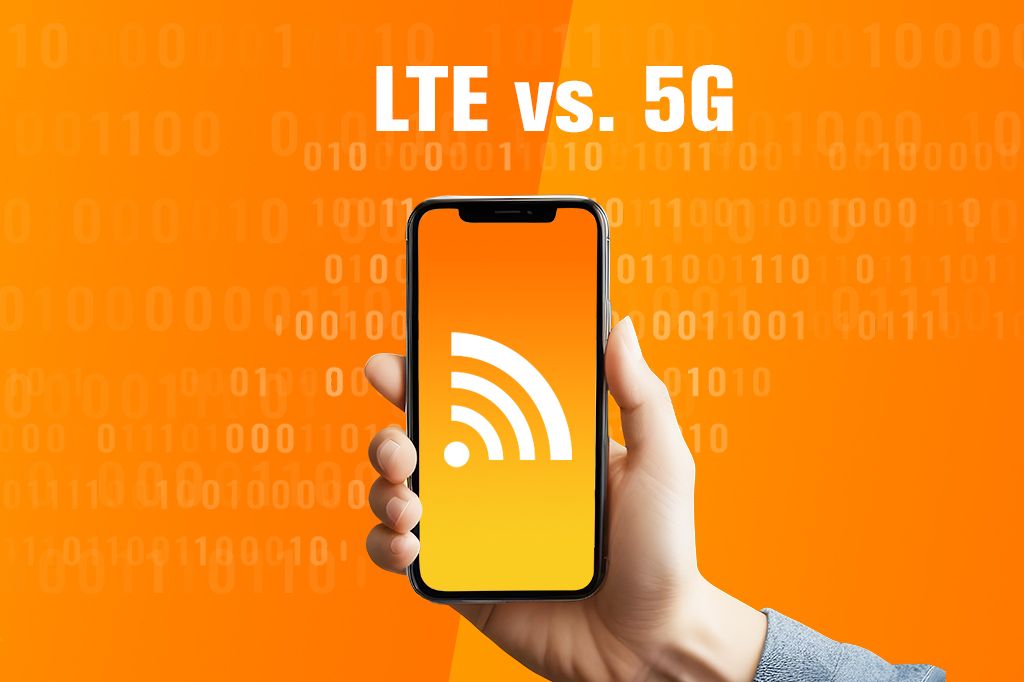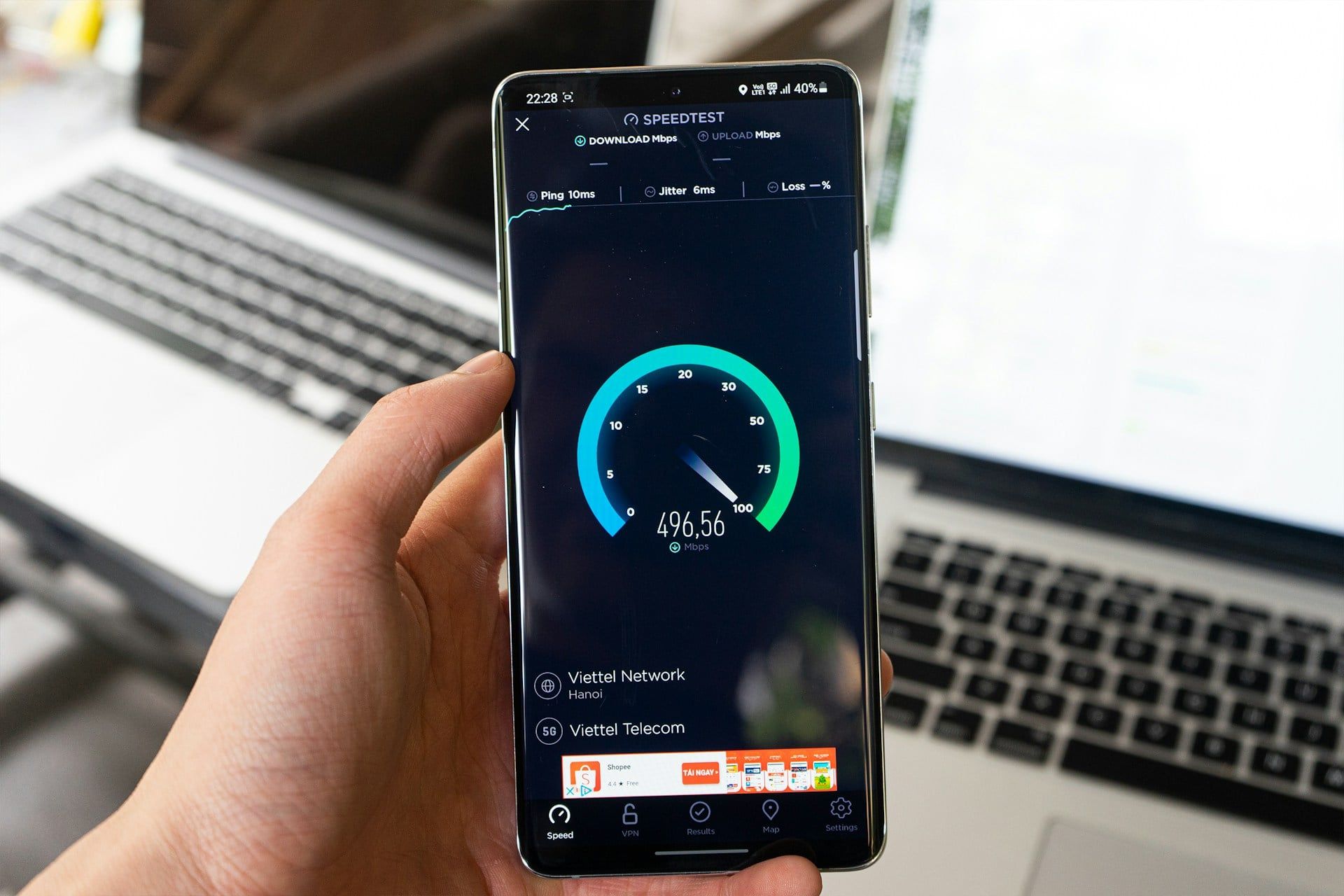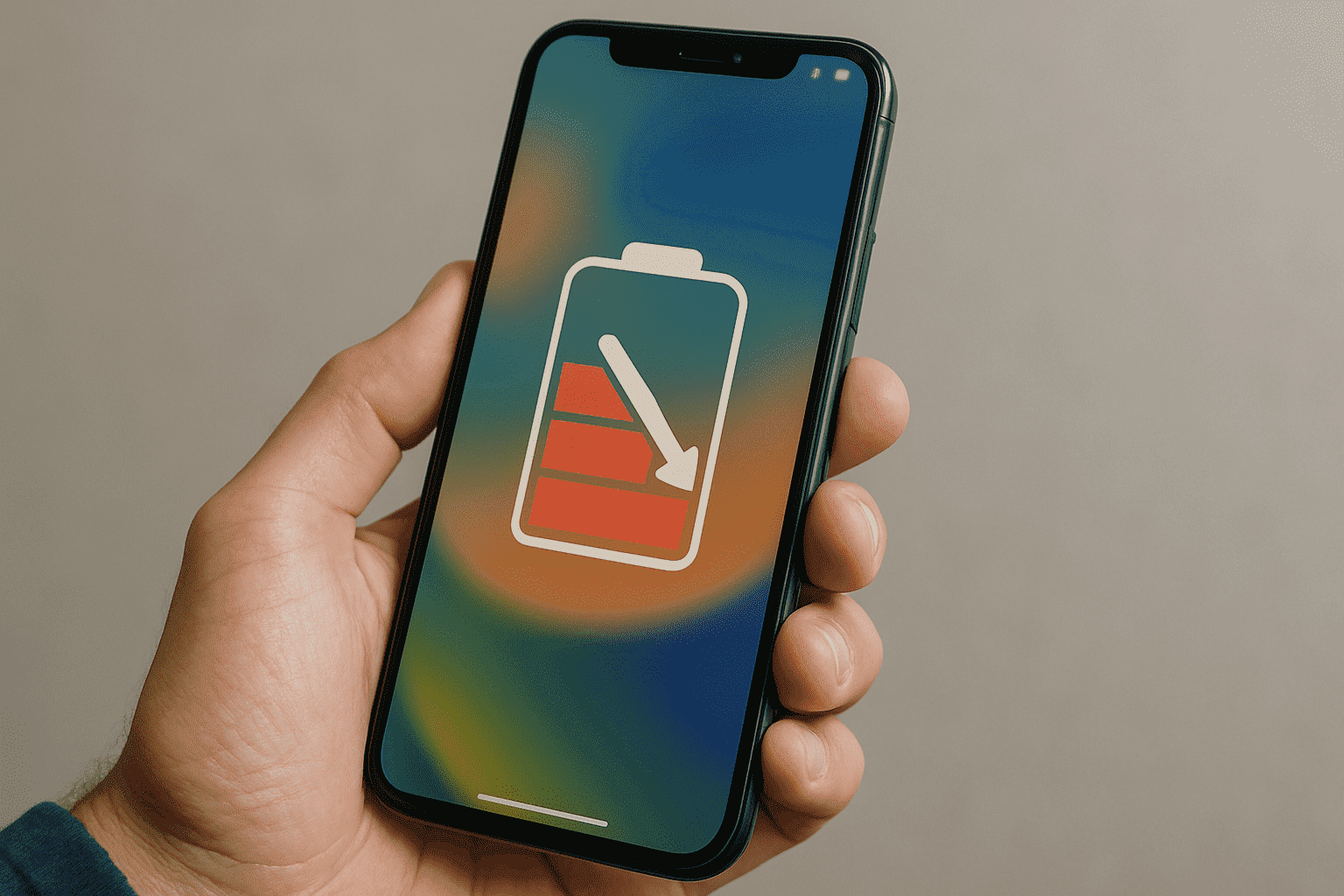You’ve heard the buzz: 5G promises lightning-fast downloads, crystal-clear video calls, and a whole new level of connectivity. But is it really worth the upgrade right now?
Many people are paying more for 5G plans or new phones, only to find the performance isn’t much better than their current LTE. Coverage maps can be misleading, speeds vary wildly, and depending on where you live, 5G might feel more like a marketing gimmick than a game-changer.
So before you make the switch, let’s break it down. This guide cuts through the noise and helps you decide based on your location, your needs, and your budget.

LTE vs 5G in the Real World: A Side-by-Side Comparison
When we talk about LTE (often called 4G LTE) and 5G, we’re discussing different generations of mobile network technology. Think of it like an old road versus a brand-new superhighway. Both get you places, but one is designed for more traffic and higher speeds.
The numbers you see in ads for 5G are often theoretical maximums – speeds achieved in perfect lab conditions. 5G can theoretically reach speeds of 10 Gigabits per second (Gbps) or even higher. LTE Advanced (a faster version of LTE) typically maxes out around 300 Megabits per second (Mbps), though 1 Gbps is theoretically possible.
But what about actual speeds? It’s a different story. For example, a recent Ookla Speedtest report showed average 5G download speeds in the US around 150-200 Mbps, while LTE averaged closer to 40-50 Mbps. So, 5G is faster, but often not the 10x leap promised everywhere, all the time.

Photo by Đức Trịnh on Unsplash
Coverage: Urban vs Rural Experiences
When it comes to 5G coverage, where you live or spend most of your time makes a huge difference. The experience in urban centers contrasts sharply with what you might find in rural areas.
-
Urban Areas: In big cities, 5G networks are expanding. You might have decent 5G coverage outdoors in downtown areas or busy commercial zones. However, even here, it can be patchy. I was once testing 5G on my commute through downtown, and the signal dropped to LTE just halfway through a 10-minute bus ride. Buildings, trees, and even heavy rain can affect the more sensitive 5G signals.
-
Rural Areas: If you live or travel outside major urban centers, LTE is still king. When 5G is not available, your phone will reliably fall back to LTE, and that’s a good thing! LTE’s infrastructure is mature and widespread. Carriers have spent years building it out, so it reaches much further.
Latency: Where It Matters and Where It Doesn’t
Latency is the delay, or lag, before a data transfer begins after an instruction. Lower latency means a quicker response. 5G promises ultra-low latency, potentially under 1 millisecond (ms). LTE latency is typically around 20-40 ms.
Does this matter to you? For online gamers, low latency is crucial for a smooth, responsive experience. It’s also vital for future tech like remote surgery or controlling robots in real-time. But, where it doesn’t: For browsing websites, checking emails, or streaming videos, the difference in latency between good LTE and average 5G is often unnoticeable for most users.
The Hidden Costs of 5G (That No One Talks About)
Switching to 5G isn’t just about potential speed; there are other factors to consider that aren’t always highlighted.
-
Battery Drain: Early 5G chipsets and the act of constantly searching for or switching between 5G and LTE signals can be a drain on your phone’s battery. Many users report their 5G phones run out of juice faster than their old LTE devices, especially in areas with spotty 5G coverage.
-
Phone and Plan Compatibility: To use 5G, you need a 5 G-compatible phone. This often means buying a new, and usually more expensive, device. Additionally, some carriers might require you to switch to a specific (and potentially pricier) 5G plan to access their full 5G network.

Industry Use Cases: Where 5G Actually Delivers
While consumer benefits are still evolving, 5G is poised to make a big impact in specific industries.
-
Smart Manufacturing: In factories, 5G can enable wireless control of robots and machinery with very low latency. This could replace complex wired Ethernet setups, offering more flexibility and efficiency. Imagine reconfiguring an assembly line without rerouting miles of cables.
-
Healthcare and Remote Surgery: The idea of a surgeon performing an operation remotely using 5 G-controlled robotic arms is exciting. The low latency and high bandwidth of 5G make it theoretically possible. However, this is still largely in the realm of advanced testing and faces huge regulatory and reliability hurdles.
-
Retail and AR: Augmented Reality (AR) experiences, like virtually trying on clothes or seeing how furniture looks in your room via your phone, can be enhanced by 5G’s speed and low latency. Some forward-thinking retailers are already experimenting with 5 G-powered AR in their flagship stores.
-
Internet of Things (IoT): Many IoT devices (like simple sensors or trackers) need wide coverage and low power consumption, not super-high speeds. LTE-M and NB-IoT (versions of LTE) are perfect for this.
-
Vehicle Telematics: Most connected car features today rely on robust LTE networks for navigation, emergency calls, and diagnostics.
If you still want to know more about what 5G can bring you, consult this article on this transformational technology.
LTE Isn’t Dead
While 5G is grabbing the headlines, LTE remains a crucial player in wireless connectivity. Its established infrastructure and widespread availability offer unique advantages that keep it highly relevant.
-
LTE’s Uptime and Reach: LTE networks are mature and extensive. This means you get reliable coverage in far more places than 5 G. For critical communications or simply staying connected outside of dense urban areas, LTE’s uptime and broad reach are unbeatable.
-
LTE in Global Roaming and Travel: When you travel internationally, your phone will most likely connect to LTE networks. While 5G roaming agreements are starting to appear, LTE is the established standard globally.
-
Why Some Carriers Still Prioritize LTE Coverage? Carriers know that widespread, reliable coverage is what most customers value. Expanding LTE to fill in gaps and improve capacity is often a more cost-effective way to keep customers happy than deploying expensive, limited-range 5G in less populated areas.
5G Bands Demystified
Not all 5G is created equal. The “band” of radio frequency it uses makes a huge difference in speed, coverage, and overall performance. To grasp how 5G works, it helps to understand the different frequency ranges—or “bands”—it operates on.
Think of it like radio stations:
-
Low-Band 5G: Uses frequencies similar to older TV broadcasts (e.g., 600-700 MHz). These signals travel far and penetrate buildings well. The downside? Speeds are often only slightly better than good LTE. This is what many carriers call “Nationwide 5G.”
-
Mid-Band 5G: (e.g., 2.5 GHz, 3.5 GHz). This is the sweet spot. It offers a good balance of coverage and significantly faster speeds than low-band 5G or LTE. This is where you’ll see more noticeable improvements.
-
High-Band 5G (mmWave): Uses very high frequencies (e.g., 28 GHz, 39 GHz). This delivers blazing-fast, multi-gigabit speeds. But the signal is very short-range (a few city blocks) and easily blocked by walls, leaves, or even your hand. It’s almost useless indoors unless there’s a dedicated indoor antenna.
Coverage Maps Aren’t Telling the Whole Story
When you look at a carrier’s 5G map, it might look like 5G is everywhere. But often, this map combines all three bands. That “nationwide” coverage is likely low-band 5G.
Tip: Look for differentiation on the map. Some carriers use different colors or labels for “Ultra Capacity 5G” (mid/high-band) versus “Extended Range 5G” (low-band). Check third-party sources like Ookla’s Speedtest Maps or RootMetrics, which often provide more realistic views of actual user experiences.
From LTE to 5G: Should You Switch Now or Wait?
This is the big question for many mobile users today. With all the buzz around 5G, it’s tempting to make the leap. But is it the right move for you right now?
To help you decide, here’s a simple guide based on three key factors: your location, your mobile usage needs, and your budget.
-
Location: Is robust mid-band or high-band 5G actually available where you live, work, and travel most? Check those maps carefully.
-
Needs: Do your daily activities genuinely require speeds beyond what good LTE offers? For example: Do you frequently download huge files, stream 4K/8K video on mobile, or are you a serious competitive online gamer on the go? If your answer is “No,” and you don’t download these types of files, LTE is probably sufficient. However, if this is the case, 5G might offer a noticeable benefit if coverage is good.
-
Budget: Are you ready to invest in a new 5G phone and potentially a more expensive plan?
If you’re in a strong 5G area, need top speeds for specific tasks, and the budget isn’t an issue, upgrading could be worthwhile. Otherwise, waiting a year or two might mean better coverage, more mature device technology, and potentially better plan prices.
Bottom line:
Switch to 5G now if: you live in a well-covered area, rely on your phone for data-heavy tasks, and are ready to invest.
Stick with LTE for now if: coverage is spotty, your needs are moderate, or you’re cost-conscious. In most other cases, waiting may actually give you more value.

Photo by Ian Taylor on Unsplash
FAQs You Won’t Find on Your Carrier’s Website
Does switching between LTE and 5G drain battery?
Yes, it can. When your phone frequently searches for or switches between 5G and LTE signals, especially in areas with mixed coverage, it can consume more battery power than staying on a stable LTE connection.
Can 5G interfere with other devices?
Generally, no, for most consumer devices. There were initial concerns about a specific 5G band (C-band) potentially interfering with some older aircraft altimeters, but mitigations have been put in place. For everyday electronics in your home, 5G interference is not a widespread issue.
Will 5G cost more in the long run?
Initially, yes. 5G phones tend to be more expensive, and some premium 5G plans cost more. Over time, as the technology becomes more mainstream, prices for devices and plans are likely to become more competitive, similar to how 4G LTE evolved.
Is 4G LTE going away soon?
No, absolutely not. 4G LTE will be around for many more years, likely well into the 2030s. It forms the backbone of current mobile connectivity and will continue to work alongside 5G, providing coverage where 5G hasn’t reached and as a reliable fallback.
Does 5G use more data?
5G itself doesn’t inherently use more data to perform the same task (e.g., loading a webpage). However, because 5G is faster, you might be tempted to consume more data, for example, streaming higher quality video (4K instead of HD) or downloading large files more often simply because you can.
You might also be interested in checking out this other comparison of connectivity technologies: WiFi 6 vs. 7.
Common Misconceptions About 5G
Marketing can create a lot of confusion. Let’s clear up some common myths about the LTE vs 5G debate.
-
“5G Is Always Faster”: As we’ve seen, low-band 5G can sometimes be similar in speed to, or even slower than, a strong LTE signal, especially if the LTE network is less congested.
-
“It’s Just for Phones”: While phones are the most visible 5G devices, their impact will be far broader. 5G is designed to connect a massive number of devices for the Internet of Things (IoT), from smart city sensors to industrial equipment. It’s also being used for Fixed Wireless Access (FWA), providing home internet in areas with poor wired broadband options.
-
“5G is Everywhere Now”: While carriers are rapidly expanding their 5G networks, true, high-performance 5G (mid-band and high-band) is still largely concentrated in urban and suburban areas. It will take many more years for comprehensive, high-speed 5G coverage to become truly ubiquitous.
5 G-Only Plans: Are They Actually Better?
Currently, most “5G plans” also give you full access to LTE networks. Your phone will intelligently switch between them. True “5 G-only” plans aren’t really a mainstream thing yet, as LTE fallback is crucial. Beware of any plan that only offers 5G access, as your coverage would be extremely limited. The main benefit of a “5G plan” is usually access to all of a carrier’s 5G bands, including the faster ones.
